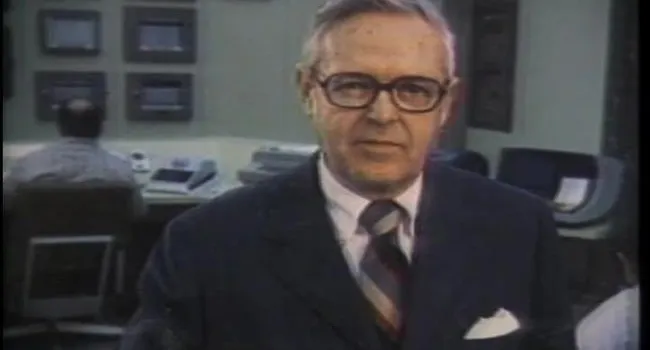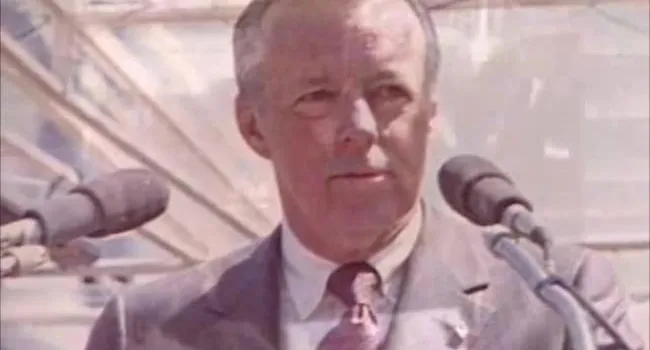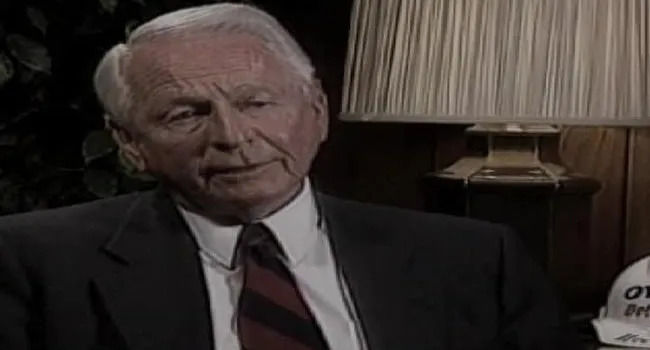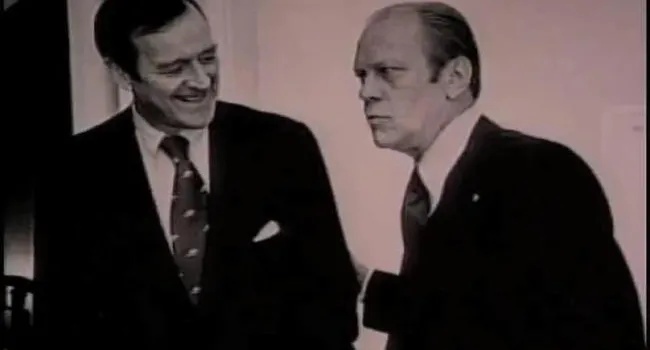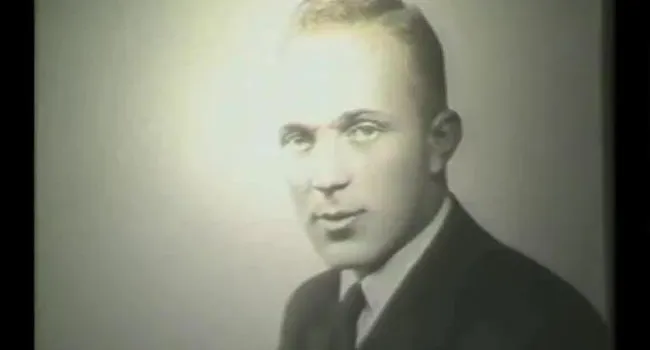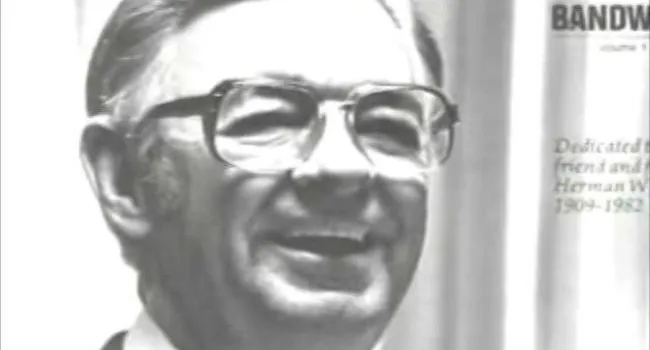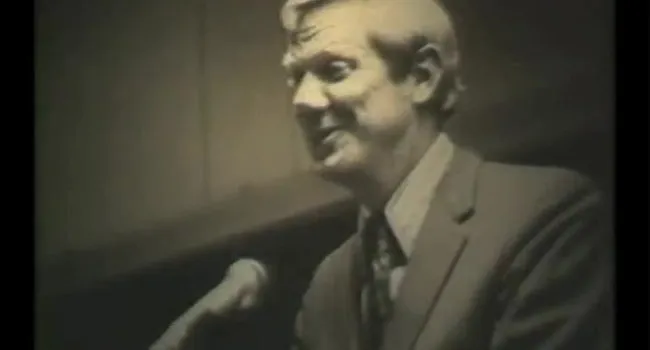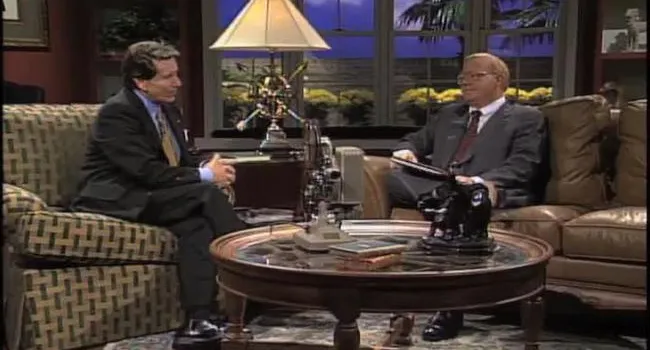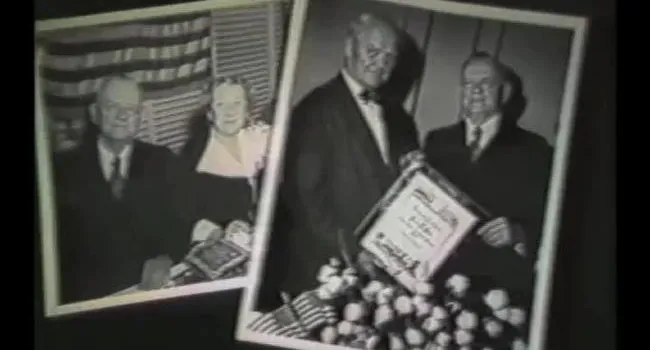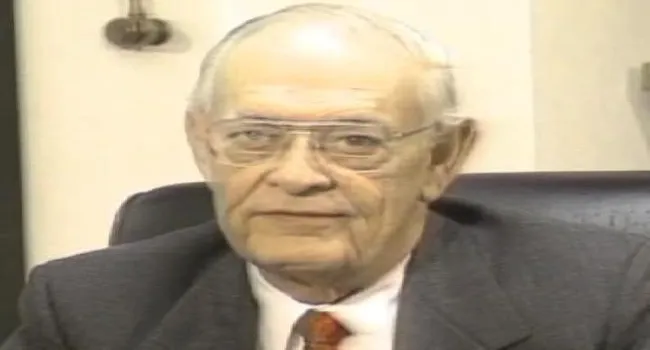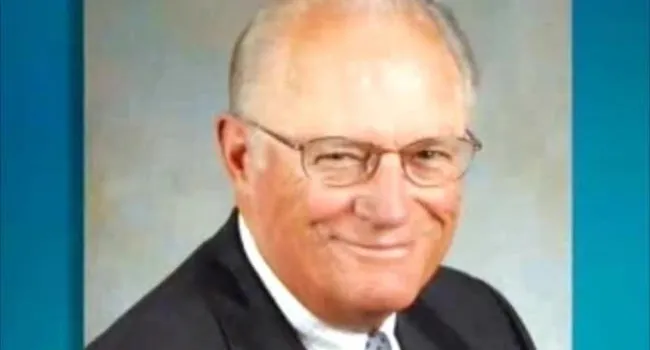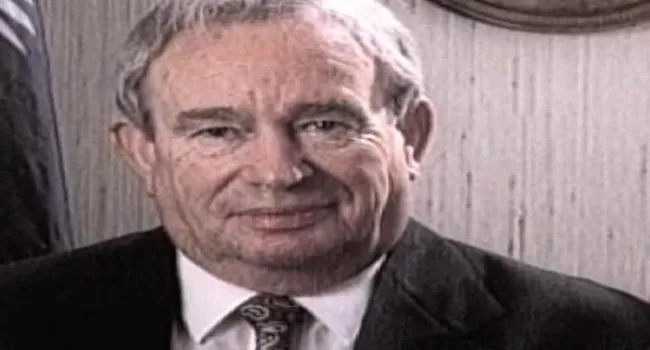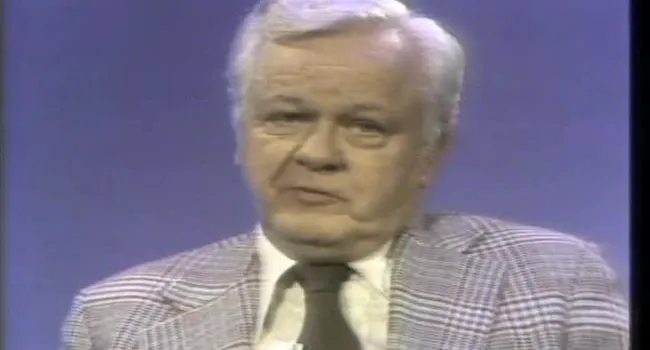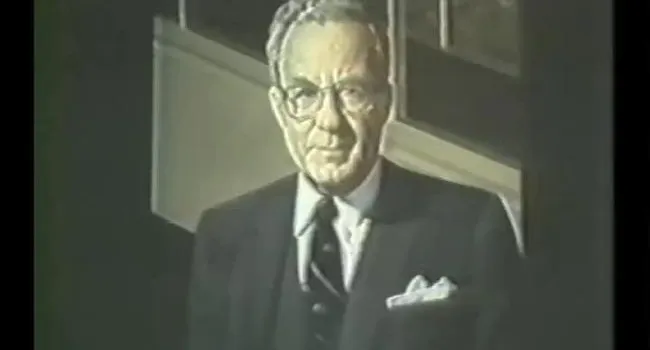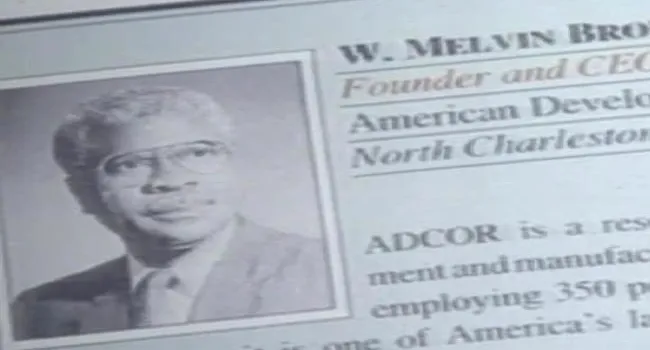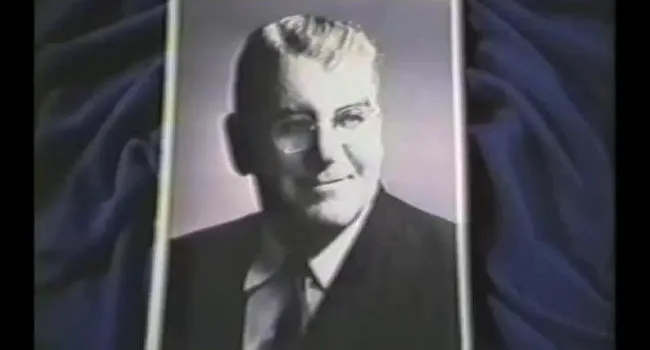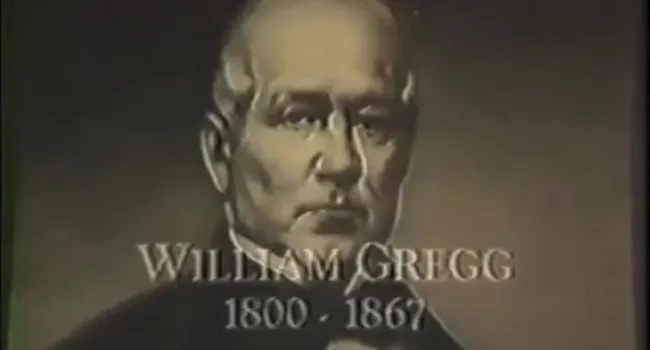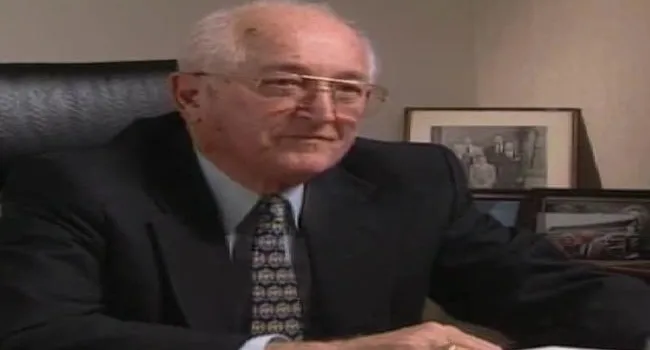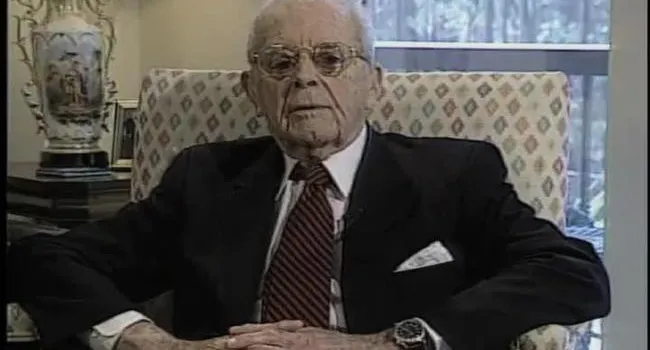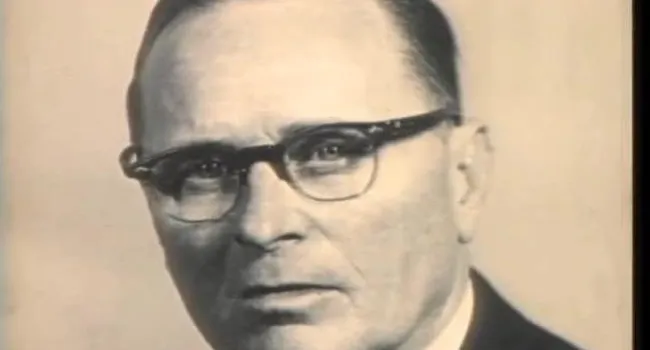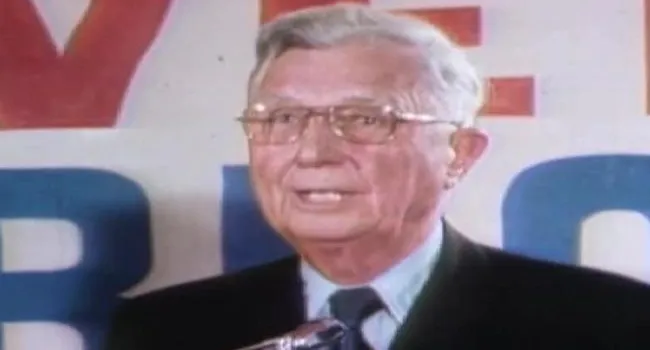Interview with Ben Rankin Morris whose career was in textiles and newspaper publishing.
Ben R. Morris (1922–2005)
Ben Morris had spent 22 years working in textiles and textile machinery when he left Atlanta for Columbia in 1970 to enter the newspaper industry.
Ben Rankin Morris was born November 12, 1922, in Gastonia, North Carolina, the son of Theodore Page and Nancy Rankin Morris. His family had been in textiles for generations, and his father was superintendent of Ridge Mill in Gastonia. Ben Morris wasn't interested in any other business but textiles.
After Army Air Corps service during World War II, Morris attended North Carolina State University in Raleigh and graduated with a degree in textile engineering.
After college, he worked two years for Textiles, Inc., of Gastonia, and in 1950, he joined Aldrich Machine Works of Greenwood, South Carolina. From Atlanta, he conducted the company's business in Georgia, Mississippi, and Tennessee as vice president and director.
Morris was drawn to the State–Record Company by way of marriage to Henriette Dargan Hampton, daughter of the late Ambrose G. Hampton, who led the family-owned newspaper company during the 1950s and 1960s. Ben Morris and Henriette Hampton, who was then living in Raleigh, North Carolina, had met at Pawleys Island when he was attending college.
Facing retirement, Ambrose Hampton wanted a family member to be his successor, and Morris was tapped. He became president and publisher of the State–Record Company in 1972. The company, which published The State and The Columbia Record, had purchased a daily in Biloxi–Gulfport, Mississippi, in 1968, and Morris adopted an acquisition strategy.
In 1973, Morris made what he calls "the best and worst" business decisions of his life. He bought the The Sun-News, a Myrtle Beach tri-weekly, and the daily Alexandria Gazette in Alexandria, Virginia.
He turned The Sun News into a daily, and it became one of the fastest-growing newspapers in the nation. The Gazette, on the other hand, struggled in the shadow of bigger Washington-area newspapers and was sold after six years.
The State–Record Company moved into television, purchasing WCBD-TV, Channel 2, in Charleston, and stations in Lubbock, Texas, and Roswell, New Mexico. They were sold after several years when the company refocused on acquiring newspapers. It bought two dailies and a weekly in Mississippi, The Newberry Observer in South Carolina, and added a Spartanburg commercial printing company, Band & White, to the operations of The State Printing Company in Columbia.
At one time, the corporation had eight subsidiaries in South Carolina, Mississippi, Texas, and Virginia. In 1972, the State–Record Company's revenues were in excess of $21 million, and by 1986 were about $89 million.
The State–Record Company invested heavily in new computer technology during the 1980s and soon needed modern equipment for more and larger newspapers. Morris was determined to buy state-of-the-art presses, and, anticipating growth, to build a spacious new plant. The cost: $45 million.
When Morris became president and publisher in 1972, The State's Sunday circulation was 123,260. In 1988, when Morris retired, circulation was 159,863 on Sundays. The State was and still is the largest newspaper in South Carolina.
In 1986, while plans for a new facility were being developed, the State–Record Company and six subsidiaries were purchased for $311 million by Knight–Ridder, Inc., of Miami, Florida. Morris remained as publisher of the Columbia newspapers until 1988, when he retired, and served on the Knight–Ridder board until 1996.
Soon after moving to Columbia, Morris was involved in the first of many public issues he was to champion. He organized and led the 1972 statewide campaign to eliminate "brown bagging," a practice that allowed consumers to carry their own alcoholic beverages into restaurants and other establishments, and to allow sale of drinks by mini-bottles. The reform has had a profound impact on the state's hospitality industry and on tourism.
He also led movements to restrain state and federal government spending. A constitutional amendment was approved by South Carolina voters to tie state taxation to growth in personal income. In 1976, Morris delivered petitions from more than 125,000 South Carolinians to Congress appealing for an amendment requiring a balanced federal budget.
Morris was president of the South Carolina Chamber of Commerce in 1974 and was appointed by Governor John C. West to the first state Commission on Human Affairs. He has been a member of the Greater Columbia Community Relations Council and a trustee of Allen University. In 1997, North Carolina State University awarded him an honorary degree, as did Belmont Abbey College in 1982.
He has served on boards of the Richland County Public Library, the Aurora Center for the Blind, and the County Historic Preservation Commission, and headed a successful capital funds campaign for Providence Hospital. The Columbia Advertising Club named him its Person of the Year in 1986.
Morris is a strong advocate of the Junior Achievement program, having served on its local advisory board and as honorary chairman of the South Carolina Business Hall of Fame.
Morris is now a principal owner and chairman of the board of Hardaway Concrete Company in Columbia.
He and Mrs. Morris have four married children: sons Ben Jr., Hampton, and Page, and daughter Dargan. They are the grandparents of 10.
He entered the South Carolina Business Hall of Fame in 1990.
© 1999 South Carolina Business Hall of Fame


